Hania Rani on bringing synths and drum machines into contemporary classical: “I spent 20 years playing one instrument, but I’m still interested in investigating others”
Moving beyond her classical repertoire, Hania Rani faces her fears with expansive new album Ghosts. Danny Turner finds out more
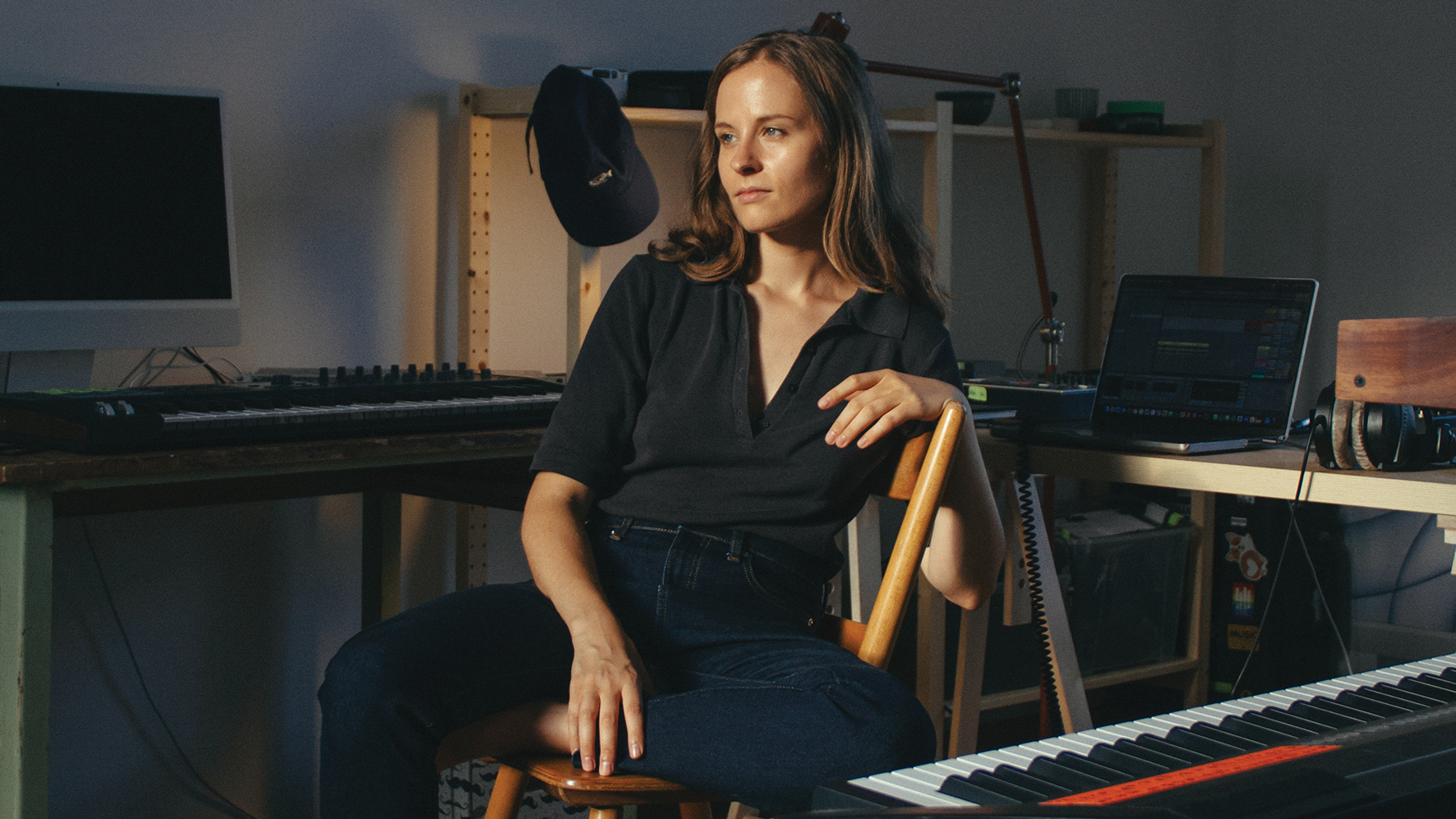
Want all the hottest music and gear news, reviews, deals, features and more, direct to your inbox? Sign up here.
You are now subscribed
Your newsletter sign-up was successful
Born in Gdansk on the Baltic coast of northern Poland, pianist Hania Rani studied classical piano in her home town, later incorporating jazz into her musical curriculum.
After collaborating with cellist Dobrawa Czocher on the instrumental album Biala Flaga in 2015, Rani began composing her own improvisations, resulting in a series of beautiful melodic piano vignettes for her debut album Esja four years later.
While further releases incorporated various film, theatre and symphonic works, Rani’s latest LP Ghosts is the first to truly venture beyond the boundaries of her classical upbringing.
In keeping with the haunting undertones of the album’s title, Rani’s use of synths, strings and vocals, alongside collaborations with Patrick Watson, Duncan Bellamy (Portico Quartet), and Ólafur Arnalds, introduces eloquent new layers to her contemporary classical sound.
Were your studies at music school in Gdansk and Fryderyk Chopin University of Music enforced on you by your parents or were you a willing participant?
“I come from Poland and our music education system is a little different to other Western countries. A couple of schools in the bigger cities offer a very professional education: you apply when you are six years old, need to pass an exam and then pick an instrument and attend varied music classes mixed with regular subjects. While you’re learning how to write academically you’re also being taught how to write music, so you’re kind of trained to be a professional musician.
“At the start, I wasn’t much into practising, but by the age of 10 I’d totally changed my mind and really wanted to become a professional piano player. Nobody had to convince me; I just started practising on my own, became very ambitious and began travelling, taking part in competitions and playing in chamber music groups.”
Want all the hottest music and gear news, reviews, deals, features and more, direct to your inbox? Sign up here.
Did you have a piano at home to practise on?
“At first I just had a regular upright piano and then my parents bought something that was good enough for me to take the next step. I practised on grand pianos at school too, so I was usually spending the whole day there from 7 o’clock in the morning, but that was just the way that we were living. It was the same when I started my university studies in Warsaw and Berlin – I would spend the entire day practising and a little bit of time with my friends, but you get used to that lifestyle.”
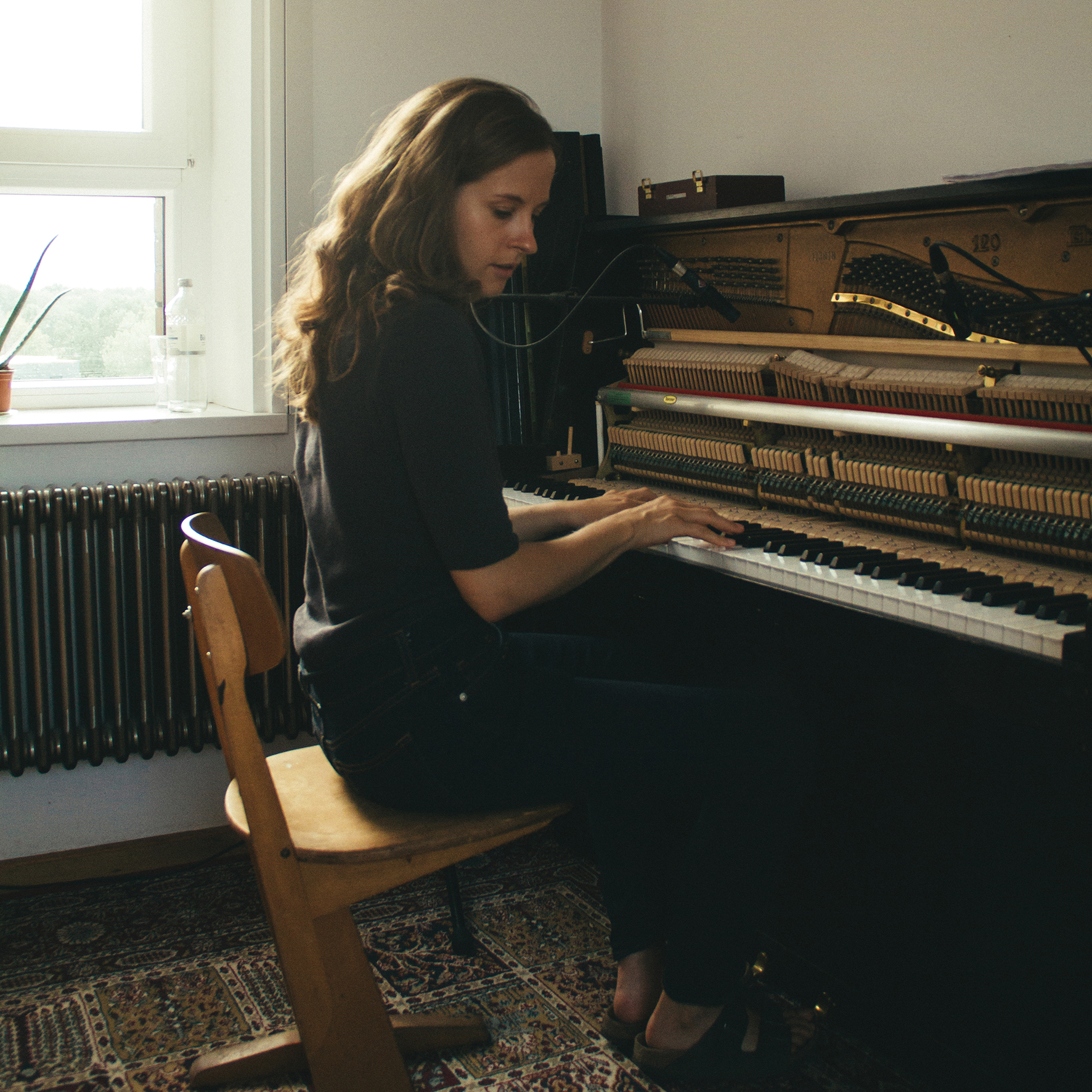
At what point in time did you start to think about moving beyond your classical training to create your own compositions?
“First, I should say that my parents were not musicians; my father is an architect and my mother a doctor, so at home they loved classical music but also listened to Pink Floyd and Cat Stevens. Music was always there and at high school I quickly started to make friends with people who had similar backgrounds and liked indie rock and jazz. I remember being very much into classical music but was also going to shows and spending a lot of time playing instruments and composing.
“I didn’t feel like I needed to share my music with anyone or consider myself a composer until I started to meet musicians in Warsaw who were making pop and electronic music. It was a cool environment and I wanted to be involved so I tried to take part in any activity I could, whether that was giving lessons or helping people to make very simple arrangements. Once I remember doing a professional arrangement and when I heard it recorded and released it sounded mind-blowing to me.”
Was that a catalyst for you?
“I started playing classical music with my friend Dobrawa Czocher, who is a cellist. We lived and studied together in Warsaw and she was offered to do an arrangement for a very famous Polish rock band in the ’80s and early ’90s. They were very rebellious and against the government, so everyone knew about them, and when Dobrawa was offered the work she asked me if I wanted to help with the arrangement.”
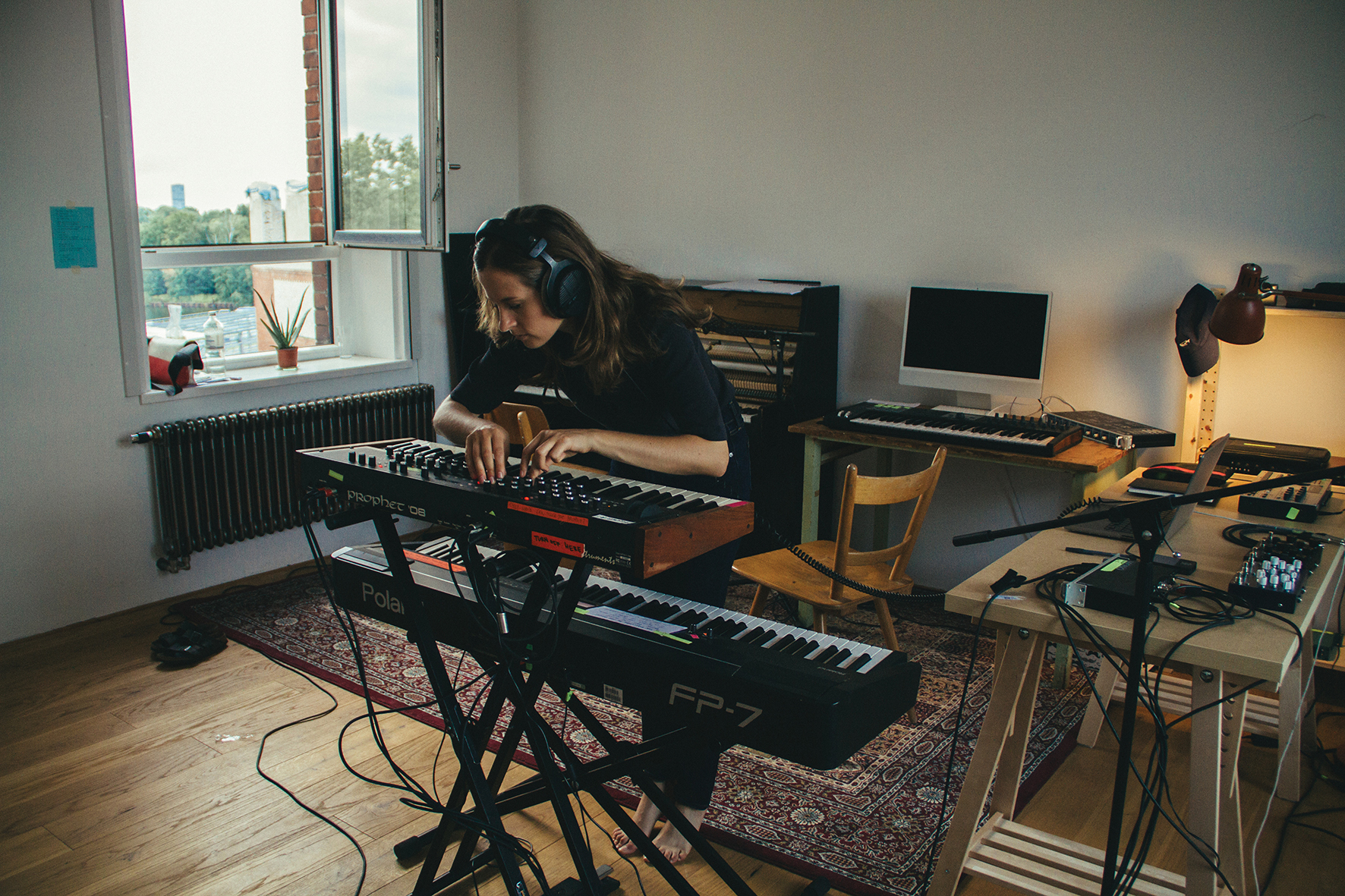
How did things evolve?
“We performed the arrangements during a festival and then a journalist from a local radio station heard it and offered to help us create a small show. We had to prepare 60 minutes of music and that was the first time that I was able to include a couple of my own compositions. The show was broadcast live around Christmas and many people listened to it in memory of this rock band, but it was also the first time that I would perform my own music. It was such an addictive feeling and I couldn’t forget how free and fearless I felt being on stage.
“From that moment, I felt more courageous about composing and arranging; I played in a garage band playing synths and doing strange singing in Polish and did many other things to help me think about fully focusing on a solo career. Eventually, I finished up all my projects and sent a demo to Gondwana Records in Manchester. They accepted me, but it still took many years before I released my debut album, Esja, in 2019.”
You’ve released numerous different albums since then, but is Ghosts the first album where you’ve collaborated with other artists to enhance your solo work?
“My previous solo album, Home, was released in 2020 and I’d been very busy working on other projects since then, but when I started working on Ghosts I wanted to start from a blank page and make it sound a bit different. I also wanted to change how I worked with instruments, my whole recording and mixing process and have other people contribute. Hopefully, I’ve picked wisely, but I love all the amazing musicians that have contributed to this album because they changed the sound.”
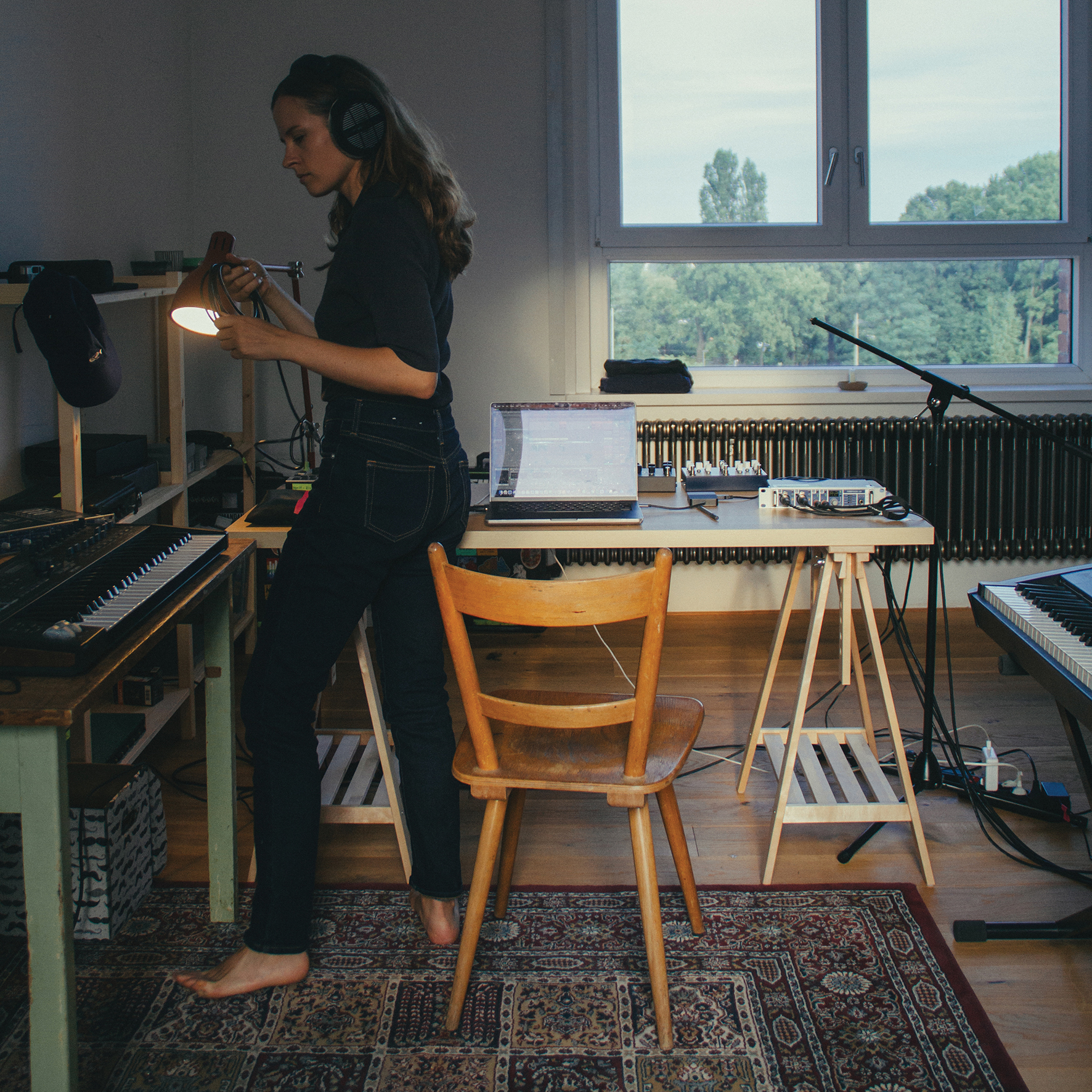
The piano is still prevalent, but would you say that Ghosts is the first body of work where the instrument has moved into the background a little?
“It’s hard to know how to respond to that because the album is very long and varied and at some point the whole process became ambiguous. I’m also involved in making film music soundtracks and became fascinated with the rough sound of synthesisers, so a couple of album tracks were made only using a Prophet ’08.
“For me, Ghosts has become a picture of me as a person, which is definitely difficult to define. I decided to sing because I started to feel good about my voice after going on tour last year and felt that I suddenly had a lot to say when it came to writing lyrics. Ghosts are always connected to stories or myths, and that all seemed to fit in with the music that I was writing.”
We get the impression that your work in film soundtrack has been influential to the outcome of this album too…
“There are a couple of important moments that relate to that. First, I mentioned the album I made with Dobrawa for Deutsche Grammophon where I was very much processing recordings of her cello. The instrumentation we used was very limited but we did a lot of layering and one track, Whale’s Song, really changed my way of thinking because it’s really just made from cello sounds that were pitched and processed in such an extreme way that it almost sounds like a different instrument.
Whenever I press one or two keys it tells me something about a particular space or environment
“From that moment, I was so fascinated by the possibilities that I kept that idea very close to me. Then I got a commission to score my first series for Amazon Prime, The Lost Flowers of Alice Hart, where the director pushed me to investigate this area further. The story is quite dark and has a lot of elements of abuse and rage, so I was forced into doing something very different. The soundtrack includes a little bit of piano, but it’s only a minor element. I was allowed to use my imagination without limits and dived into sounds that would probably never come to me naturally.
“I also tend to work on a lot of things at the same time, so I was working on two scores mostly based on synth sounds and processed strings while also working on my solo album.”
The title Ghosts could refer to many things, but we understand it was partly based on somewhere you stayed during a two-month residency in Switzerland?
“This was at the beginning of 2022 when I was working on the soundtrack to On Giacometti – a documentary about the artist Alberto Giacometti who came from the Swiss Alps. I was looking for a place to stay and work in Zurich or Basel as I knew the score would be recorded in Switzerland so the director proposed that I rent a studio that she knew based in an art residency/house in the mountains that was similar to the environment that Giacometti grew up in.
“Because I’m a city girl, it was a unique opportunity, so I moved all my instruments and piano to a beautiful space close to Davos. I’d never lived in such a remote place. It was built at the end of the 19th century and used to be somewhere that people went to get treatment when they were ill – similar to a hospital or a retreat.
“The studios were huge, with two big pianos and I was kind of alone in this valley during the winter. You could hear the wind and snow and I could feel a certain spirit or atmosphere, as if the building’s history was soaking into me. I am quite fragile when it comes to spaces in general because my instrument is acoustic; whenever I press one or two keys it tells me something about a particular space or environment.”
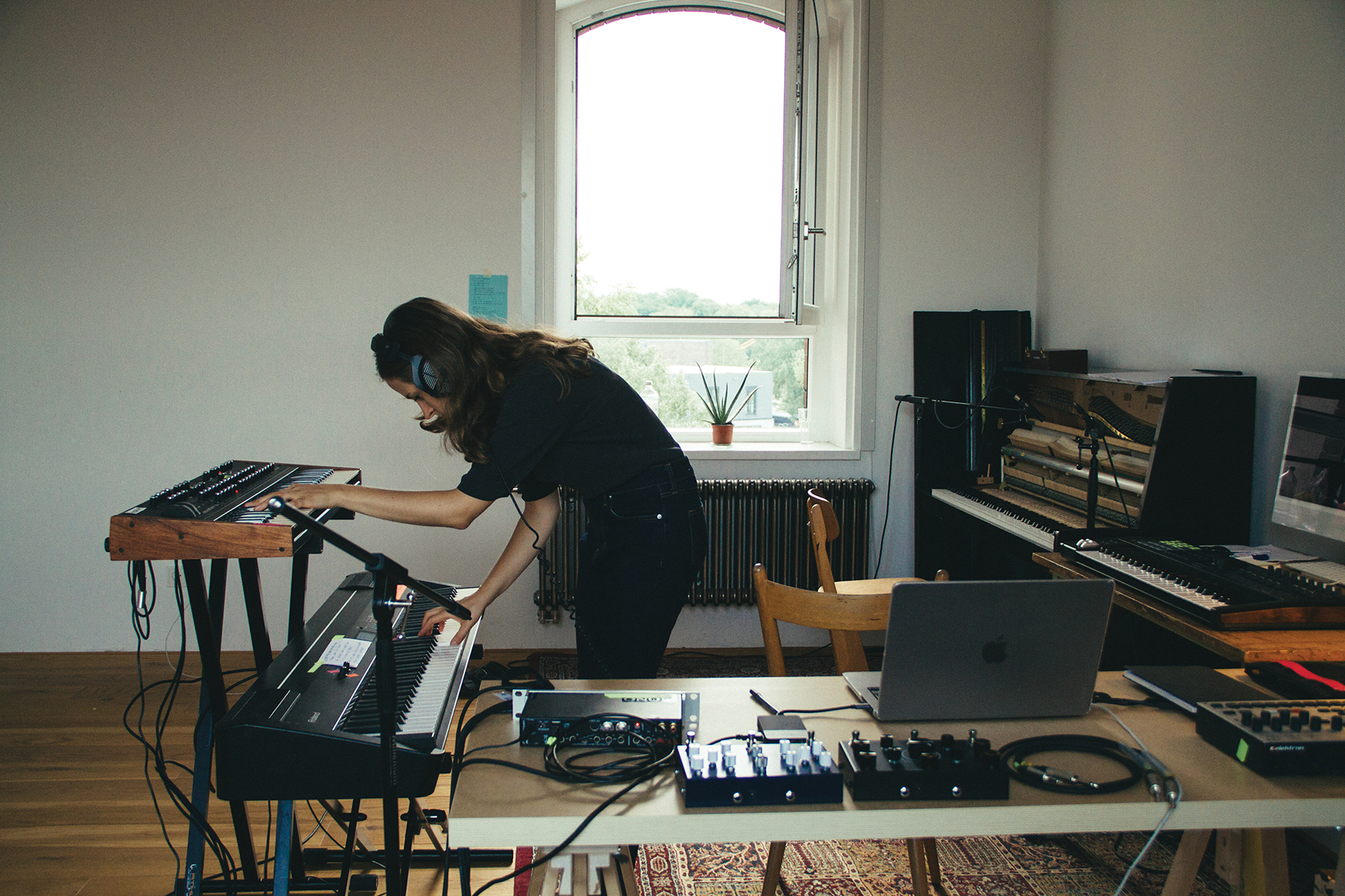
Hence the title, Ghosts?
“The topic of ghosts was already interesting to me. You can interpret the word many ways; it can mean believing in some spiritual life, or associated with memories, identity or something contemporary.
“We all have personal ghosts, which might be expressed through our social media avatars or the personalities we create in virtual realities. So this place, full of smells, feelings and stories, was the starting point and the first song I composed was Dancing with Ghosts because it felt meaningful to me to talk about imagined situations or stories relating to the fine line between life and death.”
Were you storytelling or projecting various personal fears?
“Lots of artists come to this moment of wanting to face and interpret this subject and music is such a great tool to create your own perspective. It’s so easy to sing about love and sex, but aging and fear of death is considered a taboo subject.
“Obviously, I’m just using abstract language when it comes to my album, but you can imagine how liberating it is for me to talk about things that are important, even if my own way of expressing them is very soft and mellow.”
Although the album is quite melancholy, it’s also beautiful and uplifting. On reflection, it must be interesting to look back at how you interpreted and expressed those emotions?
“Yes, especially as the recording process was so improvised. The songs were obviously there, but I never pushed myself to count track times. A couple of songs are very long but I wanted to pick takes that had a certain mood that I was looking for and keep all of the imperfections. All of these little decisions were very important to me and have hopefully helped push the music into a bit of a different direction.”
Were the tracks written as solo piano pieces before building various layers around them?
“Some of the other songs were based on piano, but most were actually based on synthesiser sounds, starting with very simple and short motifs. Obviously, I love the piano and I’m always trying to add it in, but it was not the starting point. Hello, the first single, and Don’t Break My Heart, which will be the last, were worked on with Duncan Bellamy from Portico Quartet.
“I asked Duncan to contribute to Hello first but he changed a lot of the song. I wasn’t happy about that but I loved his beats, so I created a new song around those. For Don’t Break My Heart I asked him to send me some more beats and sequences and that song was also recreated by changing the metronome, harmony and structure and cutting out the whole second refrain. This process worked really well for us.”
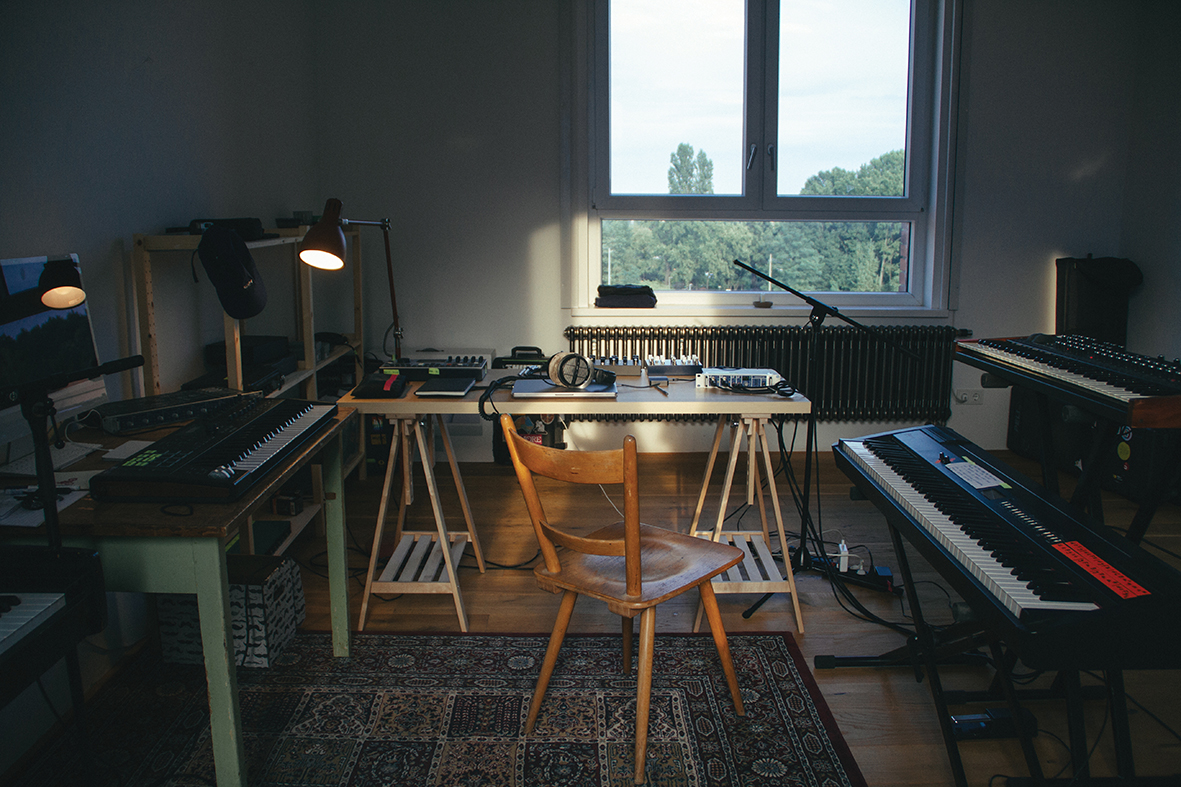
How did you find the process of recording vocals for the first time in your career?
“When it comes to sound, the voice is just another amazing instrument to tweak and process and I’m a huge fan of how vocals are treated by Thom Yorke. One of his songs was mixed by Francesco Donadello who told me that Thom didn’t want his vocals to be clearly recognised, but for them to be taken as an instrument; not hiding behind the music, but making the voice sound a little bit more disguised by using delays and reverbs.
“I really love this approach and as you can probably hear my voice is quite high, so most of the time I’m adding pitched octaves to create a little bit of an androgenic alter-ego of myself. Tracks like Don’t Break My Heart almost sound like a songwriter’s song, but on Thin Line my voice is a little more background and used as a rhythmic instrument. On Hello, the whole song rhythm is based on voice delay as a circling energy. Without the delay, the song sounds totally different.”
On the track Dancing with Ghosts you duet with Canadian singer-songwriter Patrick Watson. Were these vocal sessions recorded remotely?
“When I composed the song I thought, oh my god, this sounds just like a Patrick Watson song. He was someone I listened to a lot when I was learning to compose my own songs, so I got in touch when I was touring in Montreal last year and he told me that he really admired my music too. I feel that his approach is similar to mine because he’s so easygoing and believes in improvisation, introspection and doing things in the moment, but I’m a little bit shy so when I composed Dancing with Ghosts I just sent it to him and asked for his opinion.
He gave the song a haunted feeling, which was perfect because it’s literally about ghosts
“Thankfully, he loved the song, recorded a second vocal for me and also processed a lot of the vocal sounds and piano. I loved what he did so much because he added things that I couldn’t come up with and when he sent the stems the process became very quick, easy and natural. He gave the song a haunted feeling, which was perfect because it’s literally about ghosts.”
Ólafur Arnalds also guests on the record. He’s an artist who has very successfully bridged neoclassical and popular music. Presumably, you wanted to work with him for that very reason?
“He was very influential at the start of my career and also very kind to me. We share the same booking agent, so we’d met a couple of times and kind of became friends so I thought it’d be really nice to do something together. I was travelling after doing a project in Iceland, so I visited his studio and, funnily enough, showed him the track Don’t Break My Heart. I presumed he’d be too busy to contribute, but he said, to be honest, I’d really love to create something from scratch and invited me back for a couple of days.
“With each artist, the process of creating is so different. I came back to Ólafur’s studio a few weeks later and we spent a couple of days improvising, jamming and making music. He’s obviously an amazing engineer and producer and it was very interesting for me to learn about all the gear he was using.”
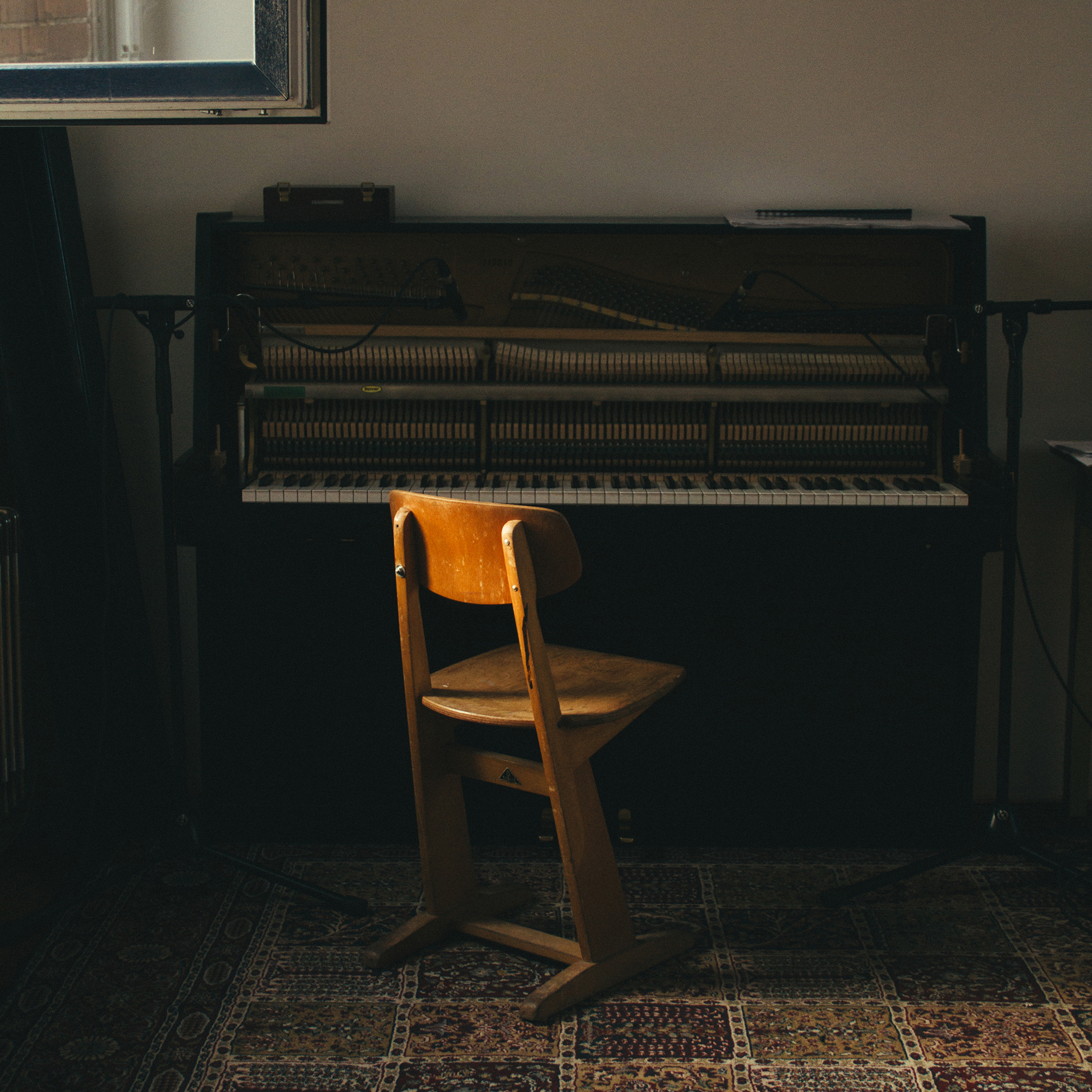
There appears to be lots of ambient noises on the track – breathing, whispers etc?
“We were recording everything live and only took a couple of takes without any cuts, but I think the sounds that you’re hearing are something to do with the location we were working in at a complex of studios in Reykjavik. Many artists have worked there, from Björk to Dustin O’Halloran and Ólafur, who is now working in the studio that used to belong to Sigur Rós.
“It’s based in a port area that’s not perfectly isolated, so you can hear lots of noises coming from the outside. Sometimes we would have to wait before recording because the fishermen were unloading fishes at the dock and lots of seagulls would come. It was peculiar, but I like the vibe of Icelandic artists; they don’t feel the need to make music that’s totally pristine and Ólafur likes to create that atmosphere too.”
Was leaving those sound artefacts in something quite new for you?
“I usually prefer my tracks to feel like they’re all coming from the same space, but this album was recorded in so many different places, using so many different instruments and sound engineers, that this element of the production couldn’t be avoided. Some of the tracks are first takes, for example, 24.03 was performed and recorded on a synthesiser in one late night session. That’s the story of the album, and there’s no point fighting against that because that’s ultimately what makes it interesting.”
Was that the reason you felt the need to use Greg Freeman as mix engineer and Viktor Orri Árnason to help arrange some elements of the tracks for you?
“I can produce and edit, but I don’t feel that I have the skills to mix tracks myself. I’m such a big fan of Portico Quartet – the band has shaped me so much and Greg has worked with them and was therefore really important.
“He also loves to sit alongside an artist when he’s mixing, so we spent two weeks together in Berlin where he processed everything through tape delays, which contributed to the sound in such a beautiful way, bringing lots of different vibes and colours. He basically managed to bring all these different tracks recorded in different places and put them in one cohesive space.
“With Viktor, I’ve been working with him for a long time because he is one of the most skilled sound engineers when it comes to arranging string recordings. We only had one day to record a big group of strings and I knew he’d be great at conducting and directing the musicians, so I wanted him to be there.”
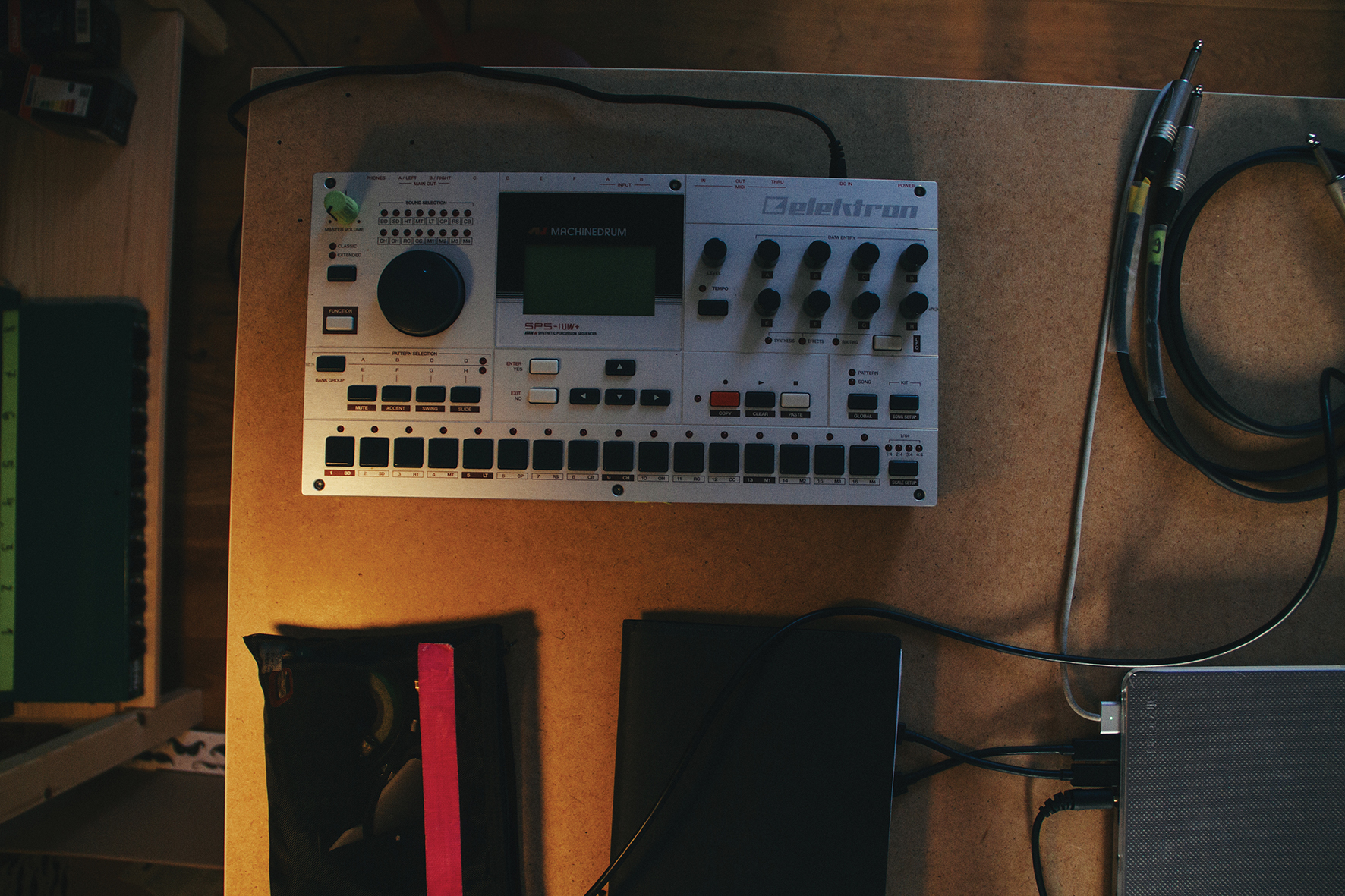
You mentioned using synths on this album as opposed to just piano...
“I’m probably a little bit different to other musicians in that I spent 20 years playing one instrument but I’m still interested in investigating others like the Prophet ’08. I knew a hip-hop producer who had one but was just using plugins, so I asked if I could buy it from him. This allowed me to bring in sounds that I had not been aware of before and use arpeggios and other little sequences, which are now present in almost all of the songs.
“The Elektron Machinedrum SPS-1UW was also used in a lot of the recordings. It’s vintage but fully digital and very eclectic and contemporary sounding. I’ve started touring with it, but the plan is to also start using it as a trigger to compose new music, like I did with the Prophet.”
What DAW are you using for recording?
“It’s funny because, when I started, my main source of knowledge came from the same hip-hop producer I mentioned who told me that Ableton Live was the best thing to use. I’m mostly working with live samples, recordings of myself and doing a lot of processing, so there is no need for me to use any crazy plugins. I’ll use a couple of delays and pitch a lot of things, but if we need to do something special we’ll just replace stuff in the mixing process or use Pro Tools.”
Will you be touring Ghosts in the near future?
“We start a tour in early October and I want to bring lots of new tracks to the stage, so right now I’m enjoying rearranging a lot of my old stuff. I’ll obviously be singing, playing keyboards and performing with my friend Ziemowit Klimek who plays double bass and Moog. As I toured last year, I feel much more comfortable performing even though we’re playing in bigger venues and the music is quite fragile, so it’s still quite a challenge!”

